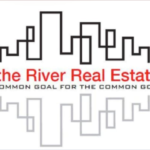Crosstown Commercial / November 30, 2020
Startups Supporting Virtual Real Estate Showings May Prosper in the Land of COVID-19
It seems we’re all looking at doing work in a new way in this new world plagued by the novel coronavirus. Educators are finding ways to teach through distance learning. Doctors are finding ways to engage with their patients via virtual conference calls, and workers in many industries have taken their work home. Many haven’t stepped into an office in months.
With changing needs and priorities, we’re all finding ways to manage the world differently than we did before. This is no different for those in the property management space. Though many property managers were hesitant to embrace technologies that would allow virtual showings in the past, the demand to maintain social distancing has had many of those same property managers changing their minds.
Startups that are behind these virtual technologies are prospering and at a fast rate. One startup, Notarize Inc., makes it easy for home purchasers and sellers to notarize their legal documents over the internet. Yet another startup, Latchable Inc., allows apartment-building tenants to inlock doors to units via a mobile device. This makes showings easier and limits contact with potentially contaminated surfaces. And though it isn’t entirely clear who was first to the game, Amazon released Key as competition to Latchable, making it easy for property managers to open building doors, garages, etc., remotely.
Today’s property managers need solutions that make it easy to keep the business operating while also providing conditions to keep tenants, buyers, and sellers safe.
Though Some Startups are Prospering, It’s Not the Case for All
Though many startups have found themselves in the right place at the right time, other startups aren’t faring as well. The pandemic has wreaked havoc for many startups, especially those specializing in the retail and lodging space. With millions of employees now spending their days in their home office, travel is down. As a result, those in the hospitality industry have suffered from decreased revenue due to lessened demand.
Startups specializing in co-working spaces have suffered too. Though these spaces are designed to support one-off workers and digital nomads, the pandemic has put pressure on these small spaces that aren’t designed to enable social distancing. As a result, many of these startups have had to lay off workers hired to staff these sites.
For most new businesses, it can take two to three years to become profitable. For startups, this trajectory to profitability is no different. With business models challenged by Covid-19, many businesses will likely continue to face turbulent waters for the time to come.
For the property management space, those startups that will find success are those that will continue to provide innovative and effective ways to show areas while protecting visitors’ health. Therefore, startups that offer solutions to locking and unlocking doors, enabling virtual tours, and those that take the in-person aspect out of the equation will be far more likely to weather the storm.































